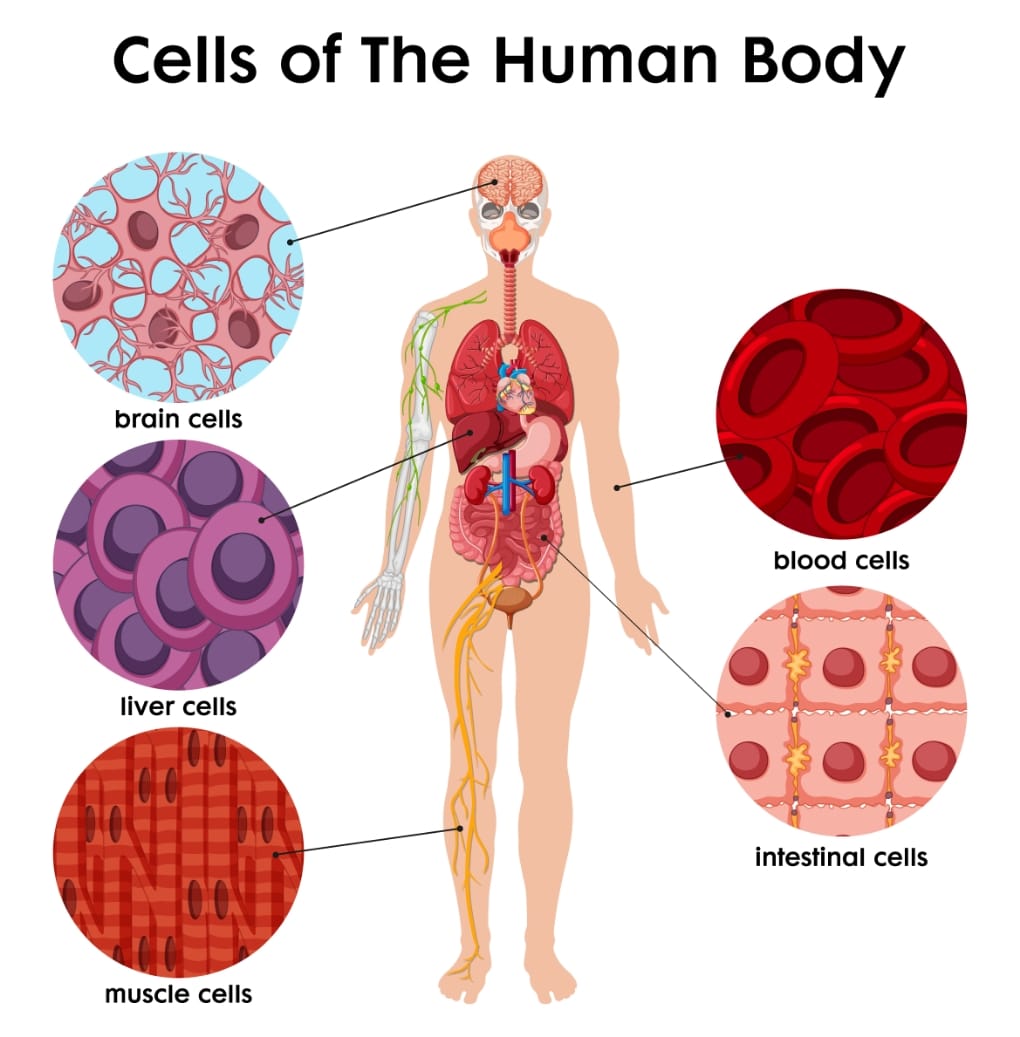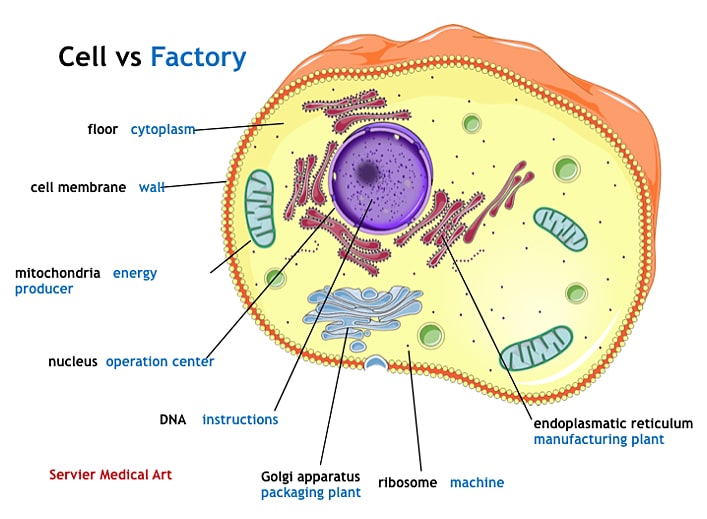Functioning of your Cell Inside the Human Body

Ever wondered How Your Cell Works?
Cells work like a factory!
Your body functions, thanks to cells – trillions of them – doing their jobs. Some make chemicals to fight infection. Others make tears to protect your eyes. Still others make proteins to help you grow.
Factories typically contain people, machines and raw materials. Supplies are brought into the factory. Workers use the supplies to build whatever products the factory makes. Machines in the factory play different roles in that process. Everything works together to make products customers need.
Cells get raw materials – including water, oxygen, minerals and other nutrients – from the foods you eat. They let in raw materials through the cell membrane: the thin, elastic structure that forms the border of each cell.
What Does a Cell Contain?
Nucleus
It controls cell function (Operation Center).
It contains DNA (deoxyribonucleic acid), the master organizer for how cells work.
Mitochondria
Are the “batteries” in your cells. (Energy Producer)
Chemical reactions within the mitochondria create the energy that powers cell functions.
Lysosomes
Are a waste-disposal system for cells.
Lysosomes eat bacteria and unwanted material in the cell. They contain enzymes that “digest” anything they absorb to make it. harmless.
Ribosomes
Are the cell’s molecule makers. (Machine)
They assemble proteins from amino acids according to the blueprint in your DNA.
Endoplasmic Reticulum
A tube-like structure (Manufacturing Plant)
They essentially produce proteins and lipids (fats).
Golgi Apparatus
Is like a conveyor belt (Packaging Plant)
The Golgi Apparatus wraps proteins inside sacs so they can be shipped out of the cell.
The DNA
In the cell’s nucleus provide instructions.
In addition to making acid to digest food, your stomach contains mucus-producing cells that protect it from being damaged by the acid.
Process
DNA instructs the ribosomes to make mucus. Once this is done, mucus is moved to the Golgi apparatus. The mucus is then packaged into vesicles that travel to the cell membrane, where it’s released, to coat the lining of your stomach.

What Does a Cell Contain?
Yes, water is alive all on its own and is much more complex in a living organism.
The water in a human body dissolves a variety of molecules and therefore is known as a Universal Solvent. On a biological level, helps cells transport and use substances like oxygen or nutrients.
It is therefore said that water has an important structural role in biology.
Another important chemical characteristic of water is ionization. Ionization happens when an atom or a molecule loses its electron or gains electrons from another atom. Even without any minerals in the water, one in ten million parts of water molecules are ionized. When a water molecule H2O is ionized, the molecule splits into 2 parts: Hydrogen Ion (H) and Hydroxyl Ion (OH-). These ions in turn ionize minerals in water to create an active chemical reaction. Since water causes ionization, without water our body ceases its chemical reactions, thus leading to death. It’s amazing how a simple molecule is universally important for organisms with diverse needs.
Alkaline Ionized Water for Healthy Cells
As we unravel the mysteries of cellular function, the significance of water, especially alkaline ionized water, becomes evident. It’s not your regular water – it’s like a special friend to our cells, helping them stay healthy. It’s fascinating how something as simple as water can be so important for our body. Shop our alkaline water ionizer and see its benefits!
